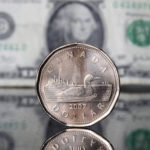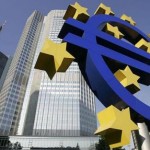The euro slipped to lower levels against the US dollar on Monday in thin trade, despite the released upbeat manufacturing sector data out of the Euro zone, while focus was being set on the upcoming ECB meeting on policy, scheduled on Thursday.
EUR/USD fell to a session low at 1.3191 at 0:40 GMT. At 14:05 GMT the pair was trading at 1.3203, dipping 0.10% for the day. Support was likely to be found at July 22nd low, 1.3144, while resistance was to be met at August 2nd high, 1.3294.
Earlier in the day Markit research group said that recovery in Euro zones manufacturing sector strengthened in August, after industries in Italy and Spain showed higher activity, following the years of contraction, due to the regions debt crisis. The report by Markit showed that activity increased in Germany and recovered in Spain, where it has been experiencing contraction for over two years. It became clear that the final manufacturing PMI in the Euro zone came in at 51.4 in August from 51.3 in July. German manufacturing PMI slightly slowed down in August compared to July, showing a value of 51.8 down from 52.0, while estimates pointed the index will remain unchanged. Italian manufacturing PMI came in at 51.3 in August from 50.4 in July, while the Spanish equivalent advanced to 51.1 in August, after staying in the contraction zone at 49.8 a month ago. Ultimately, French manufacturing activity index remained in the zone of contraction at 49.7 in August, as it showed the same exact reading during the preceding month. These positive results add to indications that Euro zones economy, having plunged into recession for one and a half years, has broken the downward trend in April and might continue improving during the third quarter of the year. However, growth outlook remained weak, because of the ongoing austerity measures by the governments in the common currency bloc.
Meanwhile, fears of a possible military intervention by the United States and its allies in Syria cooled to a certain extent, as US President Barack Obama said on August 31st that he will seek Congress’s approval before embarking on a campaign in Syria. Congress is expected to only debate an intervention in Syria, after it returns from a summer recess on September 9th, delaying any possible response to the chemical weapon attack near Damascus. In the mean time, US Secretary of State John Kerry said in front of CNN on September 1st, that the United States had proof that poisonous sarin gas was used in the chemical attack on Syrian civilians near Damascus on August 21st.
Elsewhere, the euro was losing ground against the pound, as EUR/GBP cross dropped 0.60% for the day to trade at 0.8479 at 14:43 GMT. EUR/JPY pair, on the other hand, was advancing 0.95% daily to trade at 131.00 at 14:45 GMT.





